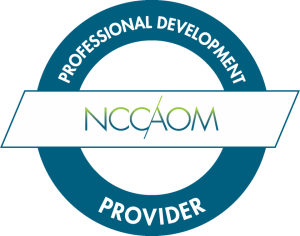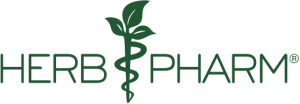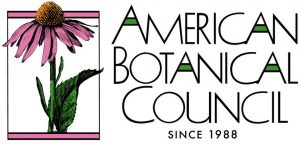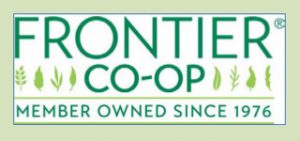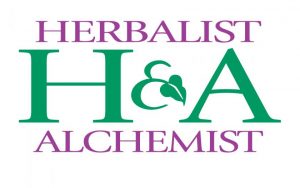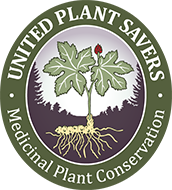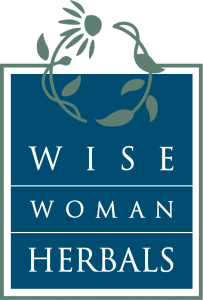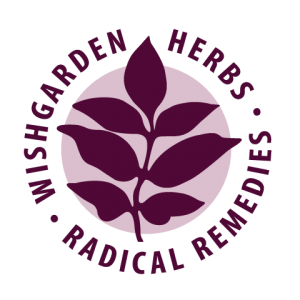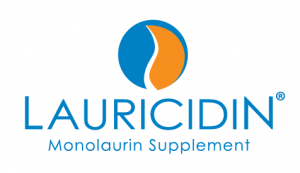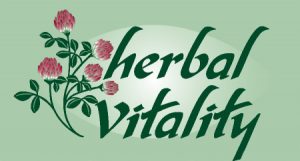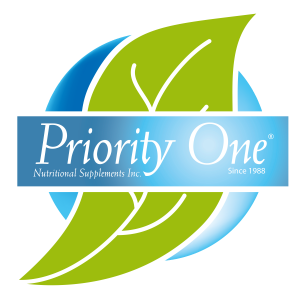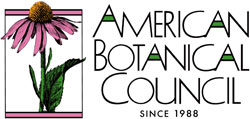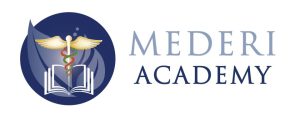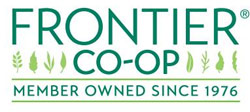Past Conference:

Past Conference — Audio recordings, videos and lecture notes from this event are available for purchase. Please note that the AAFP approval for this conference and its recordings has now expired.
Save the date for next year’s Southwest Conference: March 25-27, 2022
This annual conference took place online, with a few in-person local events planned in the Phoenix, Arizona area.
Table of Contents (Past conference)
- Live-stream videos March 26 – 28, 2021
- Registration
- In-person Field Studies and Herb Walks
- Pre-recorded on-demand videos to stream any time
- Continuing Education
- Speakers and Topics
- Sponsors and Online Exhibit Hall
Highlights:
- Full program of live online presentations March 26 – 28 with speaker Q&A
- All live presentations are recorded for later viewing if you can’t attend at the time
- Theme: Clinical Botanical Medicine for Chronic Conditions. See topic list
- 24 online lectures plus 4-hour intensive
- Pre-conference Intensive with Lise Alschuler, ND, live online with audience participation
- In-person field studies and herb walks in the Phoenix area (safety guidelines permitting)
- Panel discussion on prevention and treatment of obesity (online with audience participation)
- Continuing education credits for ND, DO, MD, RN, FNP, LAc, and others. Details
- Approved for up to 40 hours of continuing education by the American Academy of Family Physicians (AAFP)
- Registration includes:
-
- Access to 24 videos for one year (plus extra intensive for those signed up for it)
- Digital lecture notes and PowerPoints in PDF format to own
- Full set of audio recordings to own
- Continuing education ($25 additional fee for CE. One fee for all certificates needed.)
- Herb walks in the Phoenix area for local participants
Registration is now closed. See you next year! Save the date: March 25-27, 2022
Scholarships: In recognition of the need for diversity in the fields of clinical herbalism and naturopathic medicine, the conference is offering a limited number of full scholarships to persons of color (Black, Indigenous, Hispanic/Latino, and Asian-American) who are not yet practitioners and would like to further their education in the clinical uses of botanical medicine. Details
Other Full and Partial Scholarships are modeled on the work-study program. There are a limited number of scholarships based on financial need, and secondarily on participation in publicity initiatives for the conference. Applications close March 3. Details
Live stream events held March 26 – 28, 2021–past conference
(All live events are recorded for later on-demand viewing for those who can’t attend online at the scheduled time.)
Note: The information provided in this conference is a research resource for health professionals and is not intended to replace diagnosis and treatment by a qualified health care practitioner.
Online Pre-Conference Intensive with Lise Alschuler, ND
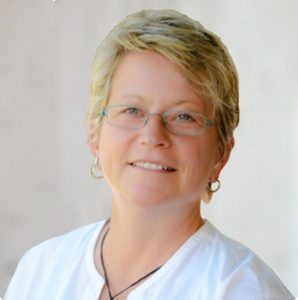
Title: Managing Pharmaceutical Side Effects and Discontinuance with Botanicals and other Natural Therapies
Date: Friday, 3/26/21
Time: 1:00 – 5:15 PM Arizona and Pacific Time on Zoom (video will be recorded for later viewing for those who cannot attend live online event)
Cost: $85
Open only to registered conference participants.
Continuing Education: 4 hours credit
- Approved by the American Academy of Family Physicians (see details below)
- Approved by NCCAOM and California Acupuncture Board (4 PDA for acupuncturists)
- Approved by OBNM and SCNM CE boards (4 pharmacy credits for NDs)
Description: Pharmaceutical side effects are one of the biggest challenges facing the medical profession today, and in this intensive Lise Alschuler, ND draws on her years of clinical experience to bring us the most current information on managing drug reactions, and in some cases safely discontinuing the pharmaceuticals causing them.
9:00 AM – 10:30 AM, Arizona and Pacific Time
COVID 19: Acute and Chronic Considerations in Naturopathic Patient Management
Kenneth Proefrock, NMD
Experience has shown us that this virus primarily affects the lungs, but it can also damage cardiac and vascular tissue, the nervous system, and other organs. For many people, symptoms persist for weeks to months after infection. Here we discuss a comprehensive naturopathic approach to the treatment of these patients from acute to chronic care. Naturopathic medical principles and strategies have proven to be effective for many patients and include hydrotherapy, botanical medicine, nebulization, and intranasal therapies, as well as lifestyle modifications.
11:30 AM – 1:00 PM, Arizona and Pacific Time
Phytosterols – A Review and Tutorial
Jillian Stansbury, ND
Phytosterols are steroid-like compounds in plants with pronounced hormonal actions. Phytoestrogens (a type of phytosterol) have been subjected to the most research and are shown to bind estrogen receptors and act as either agonists or antagonists, and sometimes both simultaneously. Phytosterols also include isoflavones, coumestans, and related compounds, which all have varying activity and ligand affinity in various tissues and with various estrogen sub-receptor types. This session reviews the maturing research on phytosterols and explores safety concerns, indications, contraindications, and important phytosterol-containing herbs such as legumes (Medicago, Trifolium, Pueraria, Glycyrrhiza) and Apiaceae family plants (Foeniculum and Pimpinella).
2:00 PM – 3:30 PM, Arizona and Pacific Time
Making Rash Decisions: Naturopathic Therapies for Eczema and Psoriasis
Katie Stage, ND and Arianna Rodriguez, ND
Drs. Stage and Rodriguez discuss their experiences managing common skin rashes. They describe the clinical presentations of eczema, psoriasis, and atopic dermatitis, and how to tell the difference. Naturopathic therapies include diet, lifestyle, nutrients, and botanicals (topical and internal), presented with supporting research. Pharmaceutical options are listed, along with uses, side effects, and possible interactions with herbs and nutrients.
4:30 PM – 6:00 PM, Arizona and Pacific Time
Panel Discussion: Naturopathic Approaches to Weight Management and Obesity Prevention
Speakers: Lise Alschuler, ND, Katie Stage, ND, and Marianne Marchese, ND
One of the challenges of this century is the prevalence of obesity and weight gain in our patients. They want to lose weight, but where do they start? These experienced practitioners describe their approaches using herbal medicine, nutritional supplements, dietary and lifestyle modifications and awareness of the effect environmental chemicals can have on our endocrine system. We also mention the most common weight-loss medications and their drawbacks and side effects.
10:00 AM – 11:30 AM, Arizona and Pacific Time
Herbal Influences on Drug Metabolism
Lise Alschuler, ND
This presentation provides an overview of the mechanisms which underlie drug/herb interactions. We explore methods to determine when drug/herb interactions present clinically actionable cautions and describe strategies to minimize the risk of such interactions. Finally, examples of the current state of evidence for drug/herb interactions for some commonly recommended botanicals including St. John’s wort, milk thistle, echinacea, turmeric (and others) are reviewed.
12:30 PM – 2:00 PM, Arizona and Pacific Time
Integrative and Botanical Interventions for Inflammatory Bowel Diseases and Associated Arthritis Conditions
Heath McAllister, ND, RH (AHG)
This presentation covers Crohn’s disease, ulcerative colitis, and IBD along with associated arthritis conditions including ankylosing spondylitis, psoriatic arthritis, and reactive arthritis. Learn how to diagnose these bowel conditions and associated antinuclear antibody (ANA) patterns. Investigate the different ANA patterns and what they mean, and discuss conventional treatments. In treatment, the first focus is on identifying the initiating cause, removing inflammatory triggers and infections, and correcting the terrain. This is followed by the use of botanicals and nutrients for modulating inflammation and immune response.
2:30 PM – 4:00 PM, Arizona and Pacific Time
Naturopathic Considerations for Musculoskeletal Pain: Alternatives to Narcotics and Anti-inflammatories
Kenneth Proefrock, NMD
Physical pain is the most common reason for patients to seek medical attention. It is also the most common reason for them to continue seeking medical attention when the usual routes of pharmaceutical intervention fail them. If a drug is able to resolve one’s pain in the moment, it seldom addresses the reasons for that pain and is unable to keep the pain away without successively stronger dosages, until, eventually, the drug doesn’t work any longer. Continued experience of pain pushes us to a contraction within ourselves, away from the pain, often at a high cost mentally, emotionally, and physically. This is an arena where natural therapeutics like botanical medicine, dietary therapy, exercise, and meditation can make a difference. We discuss adaptogenic botanicals like Aralia, Eleutherococcus, Cissus, and Schisandra, as well as specific therapeutic plant medicines like Piscidia, Mitrogyna, Cannabis, Pedicularis, Dicentra, Leonotis, Leonurus, and Glycyrrhiza.
4:30 PM – 6:00 PM, Arizona and Pacific Time
The Antiviral Materia Medica
Paul Bergner
Medicinal plants may affect viral infections in humans in three general ways: direct virucidal or inhibitory effects with topical use; enhancement of host resistance for topical or systemic infection; or reduction of inflammatory damage from viral-induced cytokine secretions. We first review evidence for direct virucidal effects of some medicinal plants for topical herpesvirus infections. We then shift to the claims made during the COVID-19 pandemic that specific herbs or their constituents may have specific virucidal effects against the SARS-CoV-2 coronavirus in the human. We review such claims for Glycyrrhiza, Andrographis, and Lomatium. In addition, we review evidence for enhancement of host resistance or reduction of viral-induced inflammation for Allium sativum; Astragalus spp; Echinacea spp; Eleutherococcus senticosus; Eupatorium spp; Ganoderma lucidum; Ligusticum spp; and Melissa Officinalis.
Field studies provide the opportunity to explore the desert medicinal plant kingdom with expert herbalists in their natural habitat.
Friday Morning Field Study with Feather Jones, RH (AHG)
(Past event–not recorded)
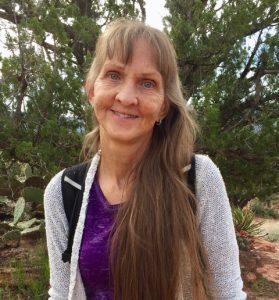
(In-person event, safety guidelines permitting)
Title: Folk Botany, Indigenous Medicine, and Modern Science
Location: In-person at Boyce Thompson Arboretum in Superior, AZ
Date: Friday, 3/26/21
Time: 9:00 AM to Noon, Arizona Time
Cost: $65 plus $15 park admission
Limit: 25 — open only to registered conference participants
CE: Application approved for 3 general hours for Arizona NDs (only).
Description: Discover the diversity, intricate beauty, and many faces of Arizona at the Boyce Thompson Arboretum, the oldest and largest botanical garden in the Southwest. Focus is on the stories of the plants, the rich tapestry of folk botany and traditional uses that are held as part of the heritage of diverse cultures, and the science that supports this knowledge.
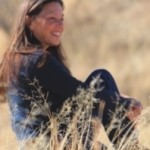
Saturday Herb Walk at the Desert Botanical Garden with JoAnn Sanchez (This event is now full)
(In-person event, safety guidelines permitting)
Title: Medicinal Plants Herb Walk
Location: In-person at the Desert Botanical Garden in Phoenix
Date: Saturday, 3/27/21
Time: 4:00 PM to 6:00 PM, Arizona Time
Cost: $29.50 admission to the garden (advance reservation required at botanical garden site–instructions will be sent to attendees). No additional cost besides admission–sign up in advance when you register for the conference. Masks required.
Limit: 10 — open only to registered conference participants.
CE: Application approved for 2 general hours for Arizona NDs (only).
Description: The spring bloom is usually spectacular in this 140-acre preserve offering over 4,000 desert plant species. Learn to identify the medicinal plants of the desert and how to use them for medicine. Join JoAnn Sanchez, master herbalist and the director of the herbalist training program at Southwest Institute of Healing Arts, on this exploratory late afternoon walk.
Sunday Herb Walk at the Desert Botanical Garden with Mimi Kamp
(This event is now full)
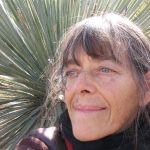
(In-person event, safety guidelines permitting)
Title: Medicinal Plants Herb Walk
Location: In-person at the Desert Botanical Garden
Date: Sunday, 3/28/21
Time: 8:30 AM to 10:30 AM, Arizona Time
Cost:$29.50 admission to the garden (advance reservation required at botanical garden site–instructions will be sent to attendees). No additional cost besides admission–sign up in advance when you register for the conference. Masks required.
Limit: 10 — open only to registered conference participants.
CE: Application approved for 2 general hours for Arizona NDs (only).
Description: On our stroll through the beautiful Desert Botanical Garden in Phoenix, AZ, we look at native plant medicines of the Sonoran and Chihuahuan deserts, focusing on Mexican and western herbal uses, as well as flower essence energies and applications. We immerse ourselves in this inspiring habitat (ocotillo, yerba mansa, and other spring bloomers usually flower at this time) and share our experiences in identifying, gathering, preserving, and using various desert botanicals.

Lise Alschuler, ND
Diverticulitis: Integrative Management
This presentation reviews the key physiological processes contributing to diverticulitis, which can provide the basis for a botanical approach to healing. First and foremost, we focus on prevention, using comprehensive lifestyle and botanical recommendations. We then look at strategies to mitigate acute inflammation and pain related to diverticulitis. Relevant research findings on select botanicals are presented, including Berberis spp., Ulmus spp., Curcuma longa, and Zingiber.
Paul Bergner
Topical Antifungal Therapeutics with Western Herbs
Plants have engaged in an “arms race” with fungi for many millions of years, and have evolved multiple mechanisms to inhibit their growth, disable their defenses, disrupt their biofilms, or destroy their cell membranes. We can take advantage of these mechanisms and apply whole plants, with all their synergistic constituents and activities, in direct contact with fungal-infected tissues. We review the Azole-class of pharmaceutical topical antifungals and then review the science and practical applications of the berberine-containing-herbs, Alliums, Calendula, thymol-containing herbs, Spilanthes/Acmella, Anemopsis, Commiphora, Usnea, Tabebuia, and Melaleuca for common oral, vaginal, and skin infections.
Medicinal Uses of the Berberine-Containing Plants
Wherever they are found, plants containing berberine and related isoquinoline-alkaloids are used in traditional systems of medicine as major topical and internal medicines. A body of research demonstrates the ability of these alkaloids to suppress or kill microbes and may validate their traditional topical applications. Research has also discovered synergistic constituents in several of these plants which potentiate the antimicrobial effects of the berberine. More recent research on concentrated forms of isolated berberine has demonstrated potential uses of these concentrates for diabetes and several other conditions. We review the research on the antimicrobial effects of the isolated alkaloids, as well as the whole plants in the genera Hydrastis, Berberis, Mahonia, Coptis, and Xanthorhiza. We then differentiate between applications of whole plant preparations and concentrated berberine compounds.
Deborah Frances, ND
Herbal Allies for Nourishing the Emotional Heart
Keeping our hearts open but protected can be a challenge, especially in these chaotic, often heartrending times. Yet it is only from the heart that we have any hope of healing our relationships with ourselves, with others, and with all creation. Plants are invaluable allies in aiding us in this endeavor. They can heal us, teach us and guide us physically, emotionally, mentally, and spiritually. Herbal allies include hawthorn, cactus (night-blooming cereus), Aralia spp (spikenard), passionflower, pine, Leonurus (motherwort), Alchemilla (lady’s mantle), and frankincense.
Lori Harger, PMHNP
Opiate Use Disorder and its Treatment from a Body-Mind-Spirit Perspective – Part 1 and Part 2
The first section of the presentation includes an overview of the use of opiates and benzodiazepines. This includes epidemiology, re-thinking clinical language, assessment of substance use, and current standards of care in medications for addiction (MAT) treatment. Explore conventional MAT treatment, pharmacology of methadone, buprenorphine, naltrexone, and short- and long-acting benzodiazepines. Investigate the history of opiate & benzo use, neurological responses to substances, theories of addiction, and trauma-informed care, then dive deeper into screening and assessment tools including motivational interviewing, co-occurring conditions, mental health, pain, and liver/kidney impairment.
The second section of the presentation covers holistic treatment strategies for addressing the pain and anxiety that drive the misuse of substances. We address botanical interventions, nutritional therapies, psychotherapeutic interventions, mind-body skills, and collaborative care. We explore the unique role of the practitioner’s healing presence as an agent of change with individuals recovering from addiction.
Tori Hudson, ND
Mushroom Medicine in Women’s Health
This presentation covers the history of medicinal mushrooms, the importance of the effects of beta-glucans on the immune system, and an exploration of the relationship between mushrooms and cancer care. The presentation includes research on Lentinula edodes (shitake), Agaricus bisporus (white button mushrooms), Cordyceps sinensis, Trametes (Coriolus) versicolor (turkey tail), Hericium erinaeus (lion’s mane), Grifola frondosa (maitake), and Ganoderma lucidum (reishi).
Feather Jones, RH (AHG)
Hormonal Imbalances and Gynecological Patterns
Menses cycles act as a window to our total health picture, often showing us imbalances long before more serious problems develop. A woman’s body sways out of balance in order to adjust to whatever the stresses are that we impose upon it. A wise approach is to see reproductive imbalances as part of a larger endocrine system involvement. From various menses cycle scenarios, we can see how to botanically support the body in order to balance hot or cold constitutions, short or long cycles, adrenal exhaustion, and liver and pelvic congestion.
Heath McAllister, ND
Understanding the Therapeutic Importance of Saponins and Saponin Containing Herbs
Saponins are secondary metabolites synthesized by many different plant species and marine animals. They have many medical uses including anti-microbial, anti-tumor, anti-insect, hepatoprotective, hemolytic, and anti-inflammatory activities. They also decrease the blood cholesterol level and may be used as adjuvants in vaccines. In this presentation, we explore types of saponins, their biological functions, the synergistic effects, and medications that are derived from them. Saponin-rich herbs highlighted in the presentation include Glycyrrhiza, Panax spp, Tribulus, Salvia milt, Aesculus hippocastanum, and more. We also cover the special indications for using saponin containing plants, including detoxification, inflammation, and regulation of the HPA effects.
Kenneth Proefrock, NMD
Getting into the Brain: Liposome Based Strategies for Neurological Conditions
Common conditions of the central nervous system, such as trauma, neurodegeneration, multiple sclerosis, stroke, and brain tumors represent a huge medical need. According to a World Health Organization report, about 1.5 billion people globally are suffering from neurological diseases. Drug therapies for neurological conditions are particularly inefficient, primarily due to the selectivity of the blood-brain barrier. Liposomes are nano- or micro-sized vesicles consisting of one or more lipid bilayers surrounding an aqueous compartment. They have emerged as promising therapeutic delivery systems that can cross the blood-brain barrier and allow for targeted delivery of nutrients and other therapies to the central nervous system.
Mary Rondeau, ND
Cannabidiol (CBD) and Mental Health
In the last few years, intense interest in the pharmacokinetics and therapeutic actions of cannabidiol (CBD) has been growing. Cannabidiol is one of many cannabinoid compounds found in cannabis. It is distinctly different from tetrahydrocannabinol (THC) because it does not appear to alter consciousness or induce a “high”. Growing scientific literature has demonstrated the benefits of CBD in neuropsychiatric conditions including antipsychotic, anxiolytic, anti-seizure, and anti-inflammatory effects. Studies that show benefits with minimal side effects are particularly of interest as many psychiatric medications have undesirable side effects. This presentation explores the endocannabinoid system, CBD pharmacokinetics, the effects of CBD on the nervous system, and the support in the literature for use in mental health disorders. Additionally, we investigate how CBD may help patients wean off select pharmaceuticals, and discuss drug-CBD interactions.
Top Ten Botanical Medicines for Managing Mental Health Disorders
Mental health disorders describe a range of conditions, including disruptive disorder, depression, bipolar disorder, anxiety, schizophrenia, and attention focus concerns. These disorders represent a multi-system physical, emotional and mental imbalance that an integrative treatment approach covers well. Pharmaceuticals, although helpful for some, are often associated with a lack of long-term evidence, side effects, and difficulty in weaning. Botanical medicine offers many unique choices that can be useful in the management of these cases with typically fewer side effect profiles and more individualization per patient. When treating a medicated population, it is important to also understand herb-drug interactions. The use of combined botanicals with drugs is discussed as well as potential medication weaning tools. The most common and well-studied herbal medicines are reviewed to provide a clear understanding of indications and contraindications when treating mental health disorders.
JoAnn Sanchez, MS
Garden Presentation: Growing a Cure
A virtual online tour of the herb garden at the Southwest College of Naturopathic Medicine reveals many botanicals that can be used in self-care for the prevention and treatment of common conditions, including herpesvirus, the common cold, diarrhea, minor pain, sore throat, constipation, skin rashes, mild mood fluctuations and more. Discover which delivery system works best for the particular herb and condition (tea, tincture, salve, etc.) and enjoy the beauty of the garden in the Spring.
John Slattery, Herbalist
Medicinal Herbs in the Kitchen (Video Demonstration Lecture)
In this class, we look at unique ways to integrate a variety of herbs from the garden and the wild into such preparations as vinegar infusions, smoothies, baked goods, pancakes, soup stocks, honey infusions, and more. John describes the medicinal value of these preparations, which herbs work well in certain preparations, and how to optimize the medicinal properties of herbs through your methods of extraction. Although we’ve become focused on taking tinctures and capsules to heal ourselves, we can lose sight of how our daily meals serve as the foundation for rejuvenating and cleansing our bodies through the power of plants.
Katie Stage, ND & Arianna Rodriguez, ND
About Face: Natural Approaches to Skin Conditions Primarily Affecting the Face
We examine the differentiation, characterization, and management of acne, rosacea, and other skin conditions using conventional and natural therapies. In addition, we touch on botanicals that improve skin quality for people of all ages.
Jillian Stansbury, ND
In-Depth Look at Centella Asiatica
Centella asiatica (Gotu Kola) is a low-growing, wetland Apiaceae family plant used widely in the herbal medicine traditions of India, Asia, and Africa. This presentation reviews the numerous medicinal applications including the use of Centella as a wound-healing agent useful in topical applications as well as internal consumption. We review the modern research on unique organic acids and triterpenoid compounds with vulnerary actions. We will also examine Centella’s indications for neurologic conditions from head trauma to nerve disease and neurologic inflammation. Since it is high in minerals and nutrients, Centella can also be used for bone and connective tissue trauma and disease. We look at the research on Centella for autoimmune disorders, limiting fibrotic degeneration and offering protective effects on a variety of tissues. We discuss the use of this versatile plant in many food-like preparations and medicinal formulas.
Continuing Education Credits
Credits issued for full or partial attendance. Please sign up for CE when you submit your registration form ($25 additional fee for all CE. One fee for all certificates needed). We offer CE, CME, CNE, PDA, and CEUs through these approvals:
AMERICAN ACADEMY OF FAMILY PHYSICIANS (AAFP):
Approved for up to 40 hours Prescribed Credit* for DO, MD, RN, FNP, California NDs, and others. AAFP approval details
The AAFP has reviewed 2021 Southwest Conference on Botanical Medicine and deemed it acceptable for AAFP credit. Term of approval is from 03/26/2021 to 03/24/2022. Physicians should claim only the credit commensurate with the extent of their participation in the activity.
*AMA/AAFP Equivalency:
AAFP Prescribed Credit is accepted by the American Medical Association as equivalent to AMA PRA Category 1 credit(s)™ toward the AMA Physician’s Recognition Award.
NATUROPATHIC PHYSICIANS:
- Approved for all NDs (including California CNDA) who accept AAFP credits described above
- Approved: Oregon (OBNM): up to 40 general hours and 13 pharmacy
- Approved: Arizona (SCNM CE Board): up to 40 general hours of which 13 can be pharmacy, or 11.5 pharmacy and 3 opioid credits. Credit for in-person field studies and herb walks approved for additional hours. (Arizona NDs only).
- ND approval details
ACUPUNCTURISTS:
- Approved: NCCAOM: 19 PDA points (hours)

Note: NCCAOM gives credit for only those videos viewed live from March 26 – 28. We have set up a special schedule for acupuncturists needing NCCAOM credits, which includes two presentations on Friday morning, March 26. NCCAOM approval details - Approved: California Acupuncture Board (CAB): Up to 19 continuing education hours for live presentations, and up to 40 continuing education hours for distance learning. Lectures can only be counted for live or distance learning, not both. CAB approval details
NURSING:
- Approved by the AAFP (see above) for up to 40 hours CE credit. (AAFP is recognized by the ANCC as a provider of nursing continuing education for RNs, FNPs and other nursing professionals)
Nursing approval details
A certificate of attendance is available to any participant who requests it.
Questions about continuing education? Please read our CE FAQ and/or email us. We’re happy to help!
Lise Alschuler, ND
A naturopathic doctor with board certification in naturopathic oncology, Lise Alschuler has been practicing since 1994. She graduated from Brown University with an undergraduate degree in Medical Anthropology and received a doctoral degree in naturopathic medicine from Bastyr University. Dr. Alschuler is past-President of the American Association of Naturopathic Physicians and a founding board member and current President of the Oncology Association of Naturopathic Physicians. She is currently an independent consultant in the area of practitioner and consumer health education. More about Lise Alschuler.
Presentations:
1. Pre-Conference Intensive: Managing Pharmaceutical Side Effects and Discontinuance with Botanicals and other Natural Therapies ($85 fee)
2. Diverticulitis: Integrative Management
3. Herbal Impacts on Drug Metabolism
4. Panel: Naturopathic Approaches to Weight Management and Obesity Prevention
Paul Bergner
The Director of the North American Institute of Medical Herbalism in Portland, Oregon, Paul Bergner offers seminar training in clinical skills, medical herbalism, nutrition, and nature cure. He supervised a teaching clinic in Boulder, Colorado from 1996 until 2012, has edited the Medical Herbalism journal since 1989, and is the author of seven books on herbal medicine. More about Paul Bergner.
Presentations:
1. Topical Antifungal Therapeutics with Western Herbs
2. The Antiviral Materia Medica
3. Medicinal Uses of the Berberine-Containing Plants
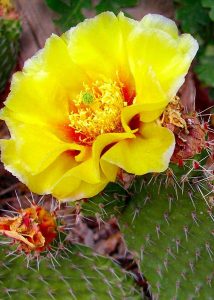
Deborah Frances, ND
Deborah Frances began her career in health care as a registered nurse, where she gathered extensive experience in a wide range of fields, including psychiatry, women’s health, family practice, and intensive and coronary care. In 1993 she graduated from the National College of Natural Medicine in Portland, Oregon. Currently on sabbatical, Deborah, also known as Dancing Crow, has just started teaching again. In her healing, she utilizes natural therapies such as homeopathy, herbal medicine, hydrotherapy, physical medicine, nutrition, and hands-on energy therapies to help resolve blocked mental, emotional, or spiritual patterns. More about Deborah Frances
Presentation:
1. Herbal Allies for Nourishing the Emotional Heart
Lori Harger, PMHNP
Before becoming a holistic nurse practitioner, Lori Harger began studying herbalism in the early 1990s at the Southwest School of Botanical Medicine with Michael Moore. She went on to become a board-certified psychiatric nurse practitioner, providing integrative care of body, mind, and spirit through the use of botanical and nutritional medicines, pharmaceuticals, and a deep trust in the innate healing process of all living systems. She works at the Centered Spirit Program of the Pascua Yaqui Tribe serving individuals experiencing addiction, trauma, and severe mental illness. She enjoys teaching heart rhythm meditation to graduate students at the University of Arizona’s Counseling and Psych Services Program. Lori lives with her family in Tucson, AZ. More about Lori Harger.
Presentations:
1. Opiate Use Disorder and its Treatment from a Body-Mind-Spirit Perspective – Part A
2. Opiate Use Disorder and its Treatment from a Body-Mind-Spirit Perspective – Part B
Tori Hudson, ND
Naturopathic physician Tori Hudson is currently a professor at the National University of Natural Medicine (NUNM) and clinical professor at Southwest College of Naturopathic Medicine and Bastyr University. She has been in practice for over 30 years and is the medical director of her clinic, A Woman’s Time, in Portland, Oregon, and director of product research and education for Vitanica supplements. She is the author of The Women’s Encyclopedia of Natural Medicine and serves on several editorial boards, advisory panels and as a consultant to the natural products industry. More about Tori Hudson.
Presentation:
1. Mushroom Medicine in Women’s Health
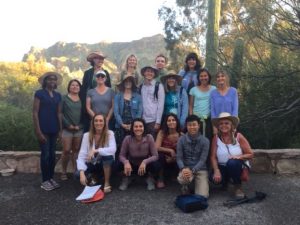
Feather Jones
Feather Jones has been practicing herbal medicine for over 35 years and integrates herbal remedies, holistic nutrition, flower essences, and stress reduction guidance. She is a Botanical Field Guide at the Southwest College of Naturopathic Medicine and has served twice on the Board of Directors for the American Herbalists Guild. Feather is an herbal consultant for the natural products industry and conducts an ongoing year-long herbal apprenticeship program. A desert woman at heart, she spends many hours on the trails near Sedona. She owns and lovingly created the organic herbal formulas for Sedona Tea Blends that provide wellness for the body, mind, and spirit. More about Feather Jones.
Presentations:
1. Friday Field Study at Boyce Thompson Arboretum (March 26, 9 AM – Noon Arizona Time)
2. Hormonal Imbalances and Gynecological Patterns
Mimi Kamp
Mimi Kamp has been making plant medicine in the Southwest for over 35 years. Her field classes and presentations emphasize habitat, sustainability, Mexican and ethnobotanical usage, and direct perception and communication with the plants themselves. She is a well-known botanical illustrator and photographer. More about Mimi Kamp.
Presentation:
1. Herb Walk at the Desert Botanical Garden (Sunday, March 28, 8:30 – 10:30 AM Arizona Time)
Marianne Marchese, ND
A naturopathic physician practicing in Phoenix, Marianne Marchese is a recognized expert in environmental medicine, women’s health, and integrative care. She is the author of the bestselling book 8 Weeks to Women’s Wellness. She has served on the State of Arizona Naturopathic Physicians Medical Board, National Association of Environmental Medicine, and Council on Naturopathic Medical Education. She has been published in numerous magazines and journals (authoring the environmental medicine column in the Townsend Letter for the last nine years), and lectures throughout the U.S and Canada. More about Marianne Marchese.
Presentation:
1. Panel: Naturopathic Approaches to Weight Management and Obesity Prevention
Heath McAllister, ND, RH (AHG)
A California-licensed naturopathic physician, Heath McAllister graduated with honors from Southwest College of Naturopathic Medicine. He has served as faculty at several health-care institutions including Bastyr University in San Diego. In his practice, he combines the best of modern medicine with the most effective alternative therapies in order to offer a customized approach to each person’s health challenges specifically tailored to their individual needs. More about Heath McAllister.
Presentations:
1. Integrative and Botanical Interventions for Inflammatory Bowel Diseases and Associated Arthritis
2. Understanding the Therapeutic Importance of Saponins and Saponin Containing Herbs
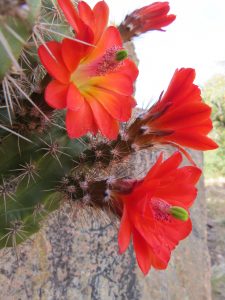
Kenneth Proefrock, NMD
A naturopathic physician practicing in Sun City, Arizona, Kenneth Proefrock specializes in difficult-to-treat conditions in his clinic, Total Wellness. He is the vice-president of the North American Board of Naturopathic Examiners and chair of the biochemistry portion of the naturopathic physician’s licensing exam. His lectures combine a detailed understanding of biochemistry and physiology with a passion for plant medicine. More about Kenneth Proefrock.
Presentations:
1. Naturopathic Considerations for Musculoskeletal Pain: Alternatives to Narcotics and Anti-inflammatories
2. Getting into the Brain: Liposome Based Strategies for Neurological Conditions
3. COVID 19: Acute and Chronic Considerations in Naturopathic Patient Management
Arianna Rodriguez, ND
Arianna Rodriguez, ND, is a graduate of Southwest College of Naturopathic Medicine and a licensed naturopathic physician in the state of Arizona. She is an adjunct faculty member at the Southwest College of Naturopathic Medicine and a member of Naturopaths Without Borders. She has experience using a variety of naturopathic modalities, especially homeopathy, botanical medicine, and nutrition. One of her specialties is managing dermatologic conditions from a holistic, naturopathic perspective. She has completed over 100 hours of preceptorship and training in dermatology. More about Arianna Rodriguez
Presentations:
1. Making Rash Decisions: Naturopathic Therapies for Eczema and Psoriasis (presented with Katie Stage, ND)
2. About Face: Natural Approaches to Skin Conditions Primarily Affecting the Face (presented with Katie Stage, ND)
Mary Rondeau, ND, RH (AHG)
A naturopathic physician and herbalist, Mary Rondeau is the co-founder of the Wholeness Center in Fort Collins, Colorado, one of the most innovative integrative mental health centers in the US. She is co-owner of Synergy Neurofeedback, which aims to use objective lab findings (brain mapping) for determining medication and supplement recommendations for mental health disorders. This also involves neurofeedback therapy as a unique treatment strategy. Her love for nutrition and food met with the formation of The Wholeness Chef, a nutrition-focused cooking program that can be found on YouTube. More about Mary Rondeau.
Presentations:
1. Cannabidiol (CBD) and Mental Health
2. Top Ten Botanical Medicines for Managing Mental Health Disorders
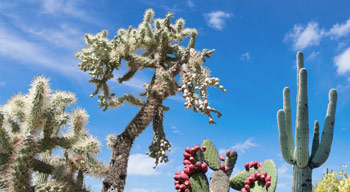 JoAnn Sanchez, MS
JoAnn Sanchez, MS
JoAnn Sanchez is the director of the herbalist training program at Southwest Institute of Healing Arts in Scottsdale (a 700-hour diploma program), for which she has recently published five textbook manuals. She teaches at the Southwest College of Naturopathic Medicine, where she also tends the medicine garden. More about JoAnn Sanchez.
Presentations:
1. Pre-recorded garden video: Growing the Cure
2. Herb Walk at the Desert Botanical Garden, 4 – 6 PM Arizona Time, Saturday March 27
John Slattery
John is a bioregional herbalist helping people develop relationships with wild plants. He founded Desert Tortoise Botanicals in 2005 which offers wild-harvested plant medicines to the people of the Southwest. He maintains a clinical practice in Tucson, AZ, and offers plant walks, foraging expeditions, field trips into Sonora, Mexico, and his annual Sonoran Herbalist Apprenticeship Program. More about John Slattery.
Presentations:
1. Medicinal Herbs in the Kitchen (Demonstration Lecture via video)
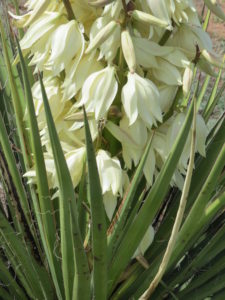
Katie Stage, ND, RH (AHG)
Katie Stage is a naturopathic physician practicing at the SCNM clinic in Tempe. She is a full-time faculty member at SCNM, teaching botanical medicine, hydrotherapy, GYN lab, and clinical skills. More about Katie Stage.
Presentations:
1. Making Rash Decisions: Naturopathic Therapies for Eczema and Psoriasis (presented with Arianna Rodriquez, ND)
2. About Face: Natural Approaches to Skin Conditions Primarily Affecting the Face (presented with Arianna Rodriguez, ND)
3. Panel: Naturopathic Approaches to Weight Management and Obesity Prevention
Jillian Stansbury, ND
Jillian Stansbury is a naturopathic physician who has been practicing in SW Washington State for over 30 years specializing in women’s health, mental health, and chronic disease. She holds undergraduate degrees in Medical Illustration and Medical Assisting and graduated with honors in both programs. She was the chair of the botanical medicine department at the National College of Natural Medicine for over 20 years. Jill has recently published four herbal formularies with a fifth due out in 2021. More about Jillian Stansbury.
Presentations:
1. In-Depth Look at Centella Asiatica
2. Phytosterols – A Review and Tutorial
Sponsors and Exhibitors
Sponsors also have the opportunity to join our virtual exhibit hall where participants learn more about their companies and take advantage of special offers. Interested in being a sponsor? Contact us for more information.
Thank you to our sponsors!
Buy Tickets







